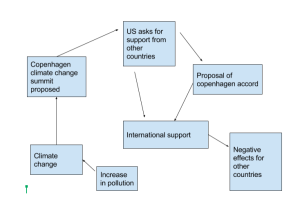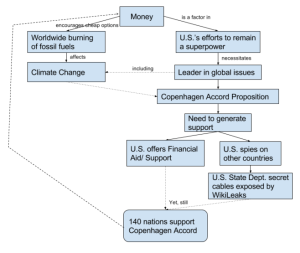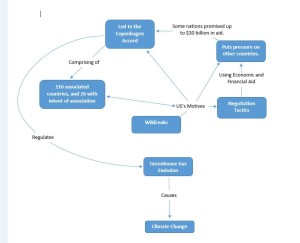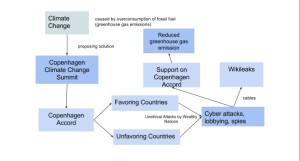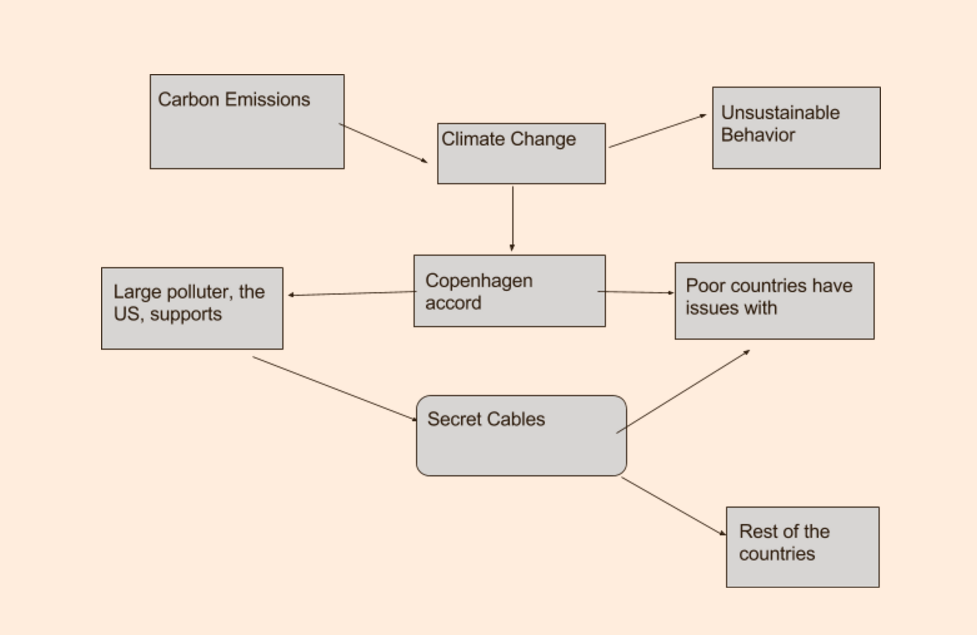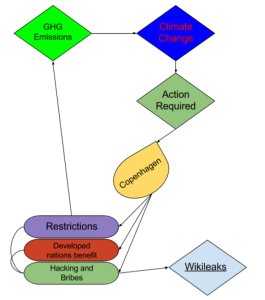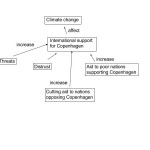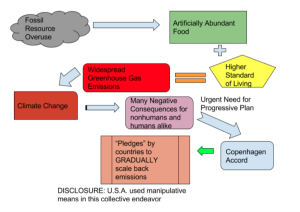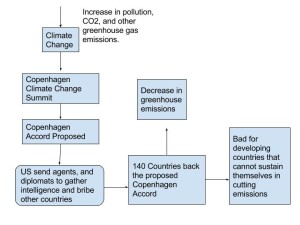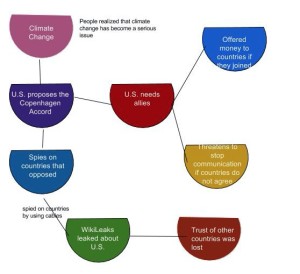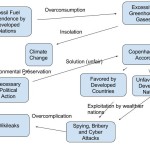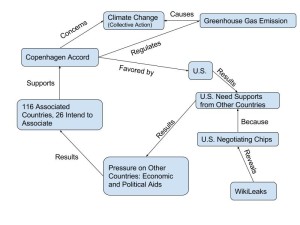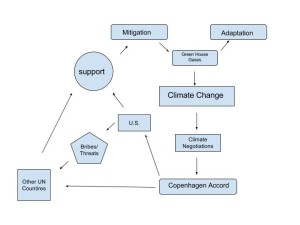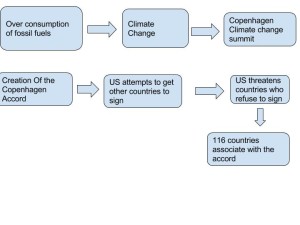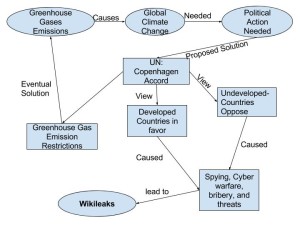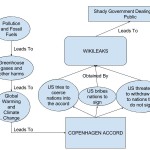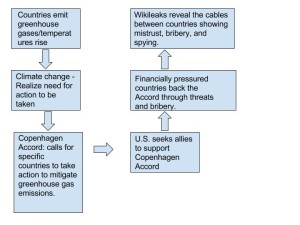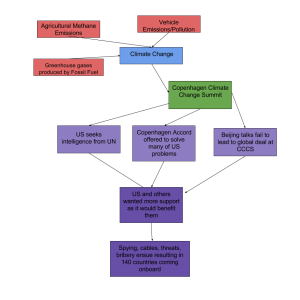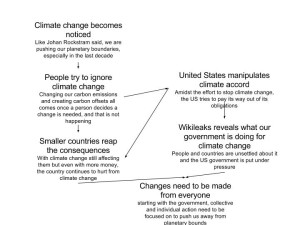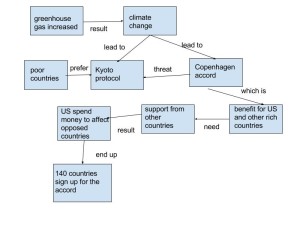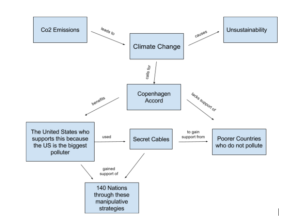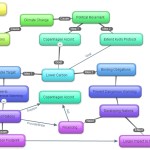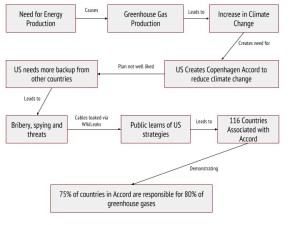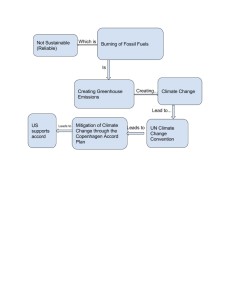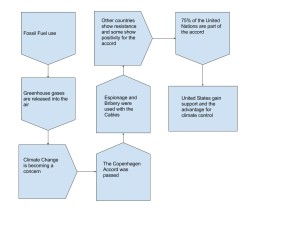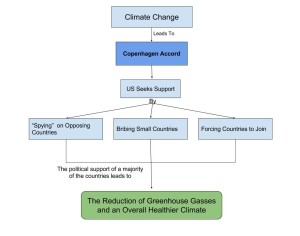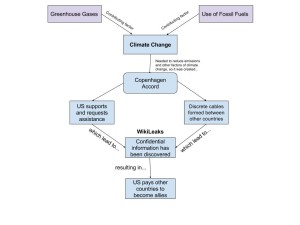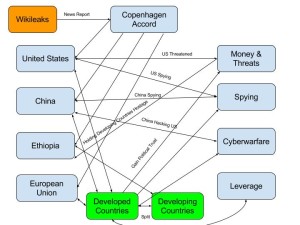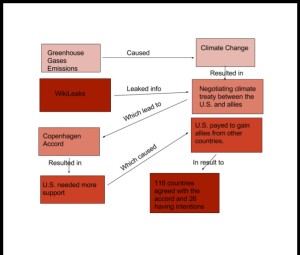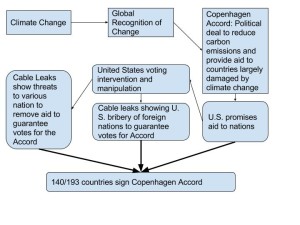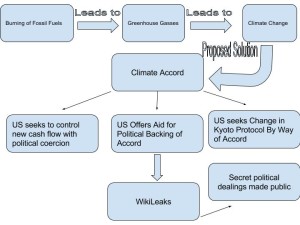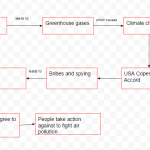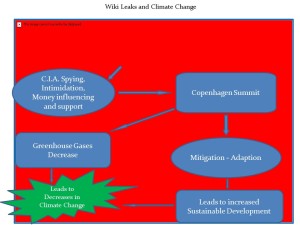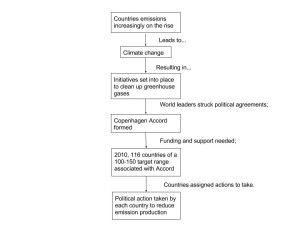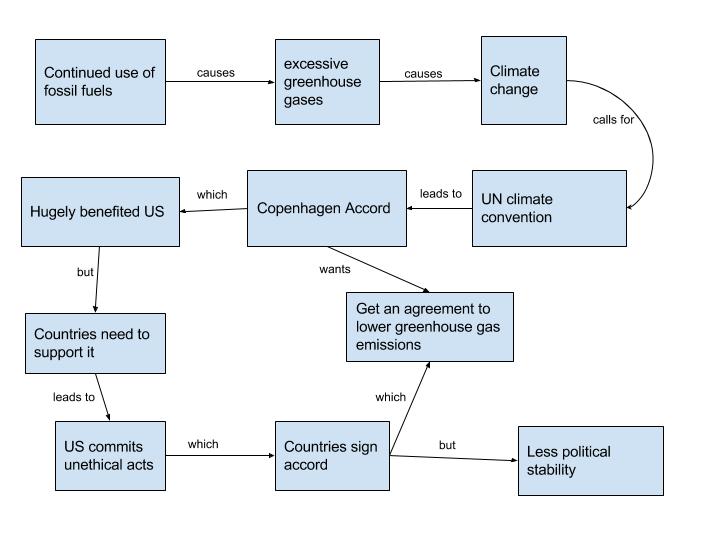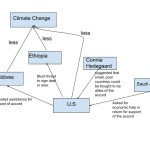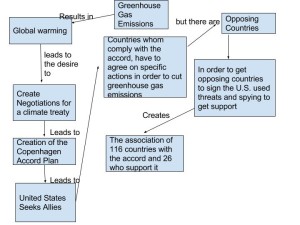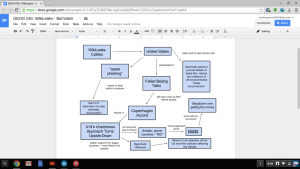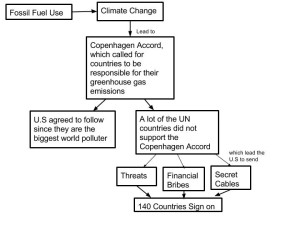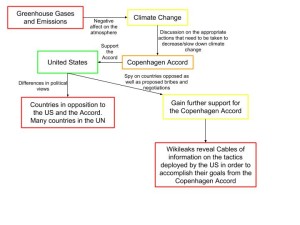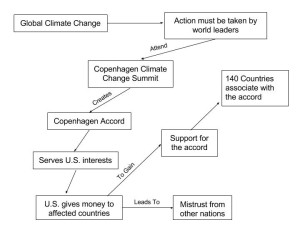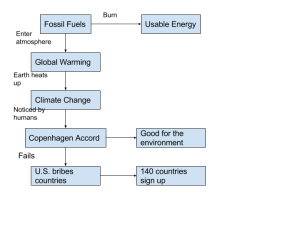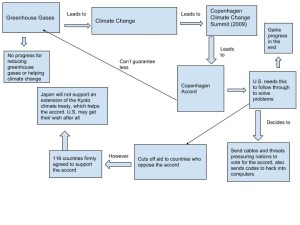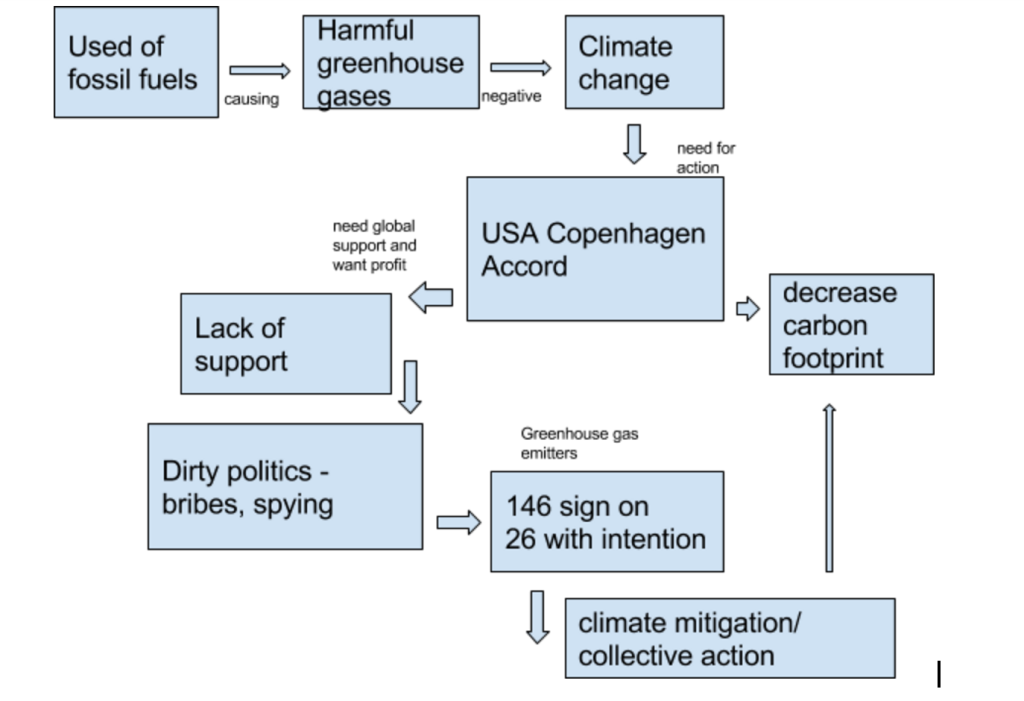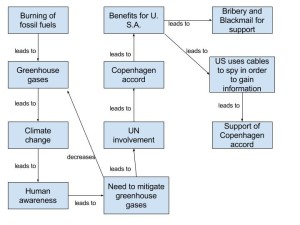After reading about the Copenhagen accord, I created a diagram of the system in which the problems have started from and what they have created. It is evident that the main cause of the problems that are being face now are the climate changes that have occurred due to air pollution and increased emission from greenhouses. Once this evidently became a problem, the Copenhagen Climate Change Summit was created in 2009. The United States was in full support of this, which led to other countries also agreeing to support it as well. However, it took some bribing from the U.S. for the countries to agree because the Copenhagen Accord needed more countries to sign and support it. After bribing many other countries, 140 countries were in support of the Copenhagen Accord. This resulted in many changes in other countries, and fortunately for the United States, they could keep up with these changes due to the U.S. being a wealthy country. On the other hand, however, these other countries that cannot afford to adapt to these changes, are struggling in keeping up. The diagram explains how the air pollution was the beginning issue and how that resulted in climate changes that were affecting the area. In addition, that become the reason for why the Copenhagen Climate Change Summit was created. The diagram shows how there was an issue with the proposal, as there were not enough countries to support the cause. Which then results in the U.S bribing other countries for their support. Which did not end up helping these other countries, which is why there are still issues.
In my opinion, the United States was being greedy when they bribed these other countries and I do not think what they did was trustworthy or respectful. It was a selfish decision made by the country and I think that what happened as a result was fair. The U.S. using the cables as a way to get the other countries to agree was not the right way to do it. This is why I do believe that the cable’s being leaked was right for what the United States did to the other countries. The issue could have been solved in a different way. Pollution is a problem with many countries in some way. The U.S used its economic and political power to take advantage of other countries, which is not a good way to deal with bigger problems that can be solved in other ways.

